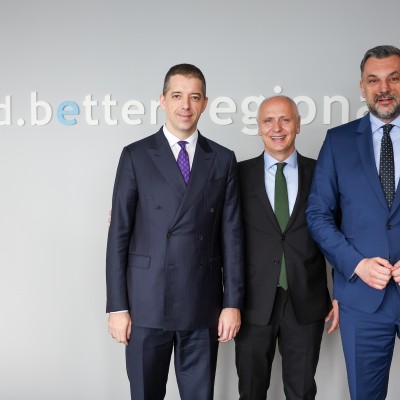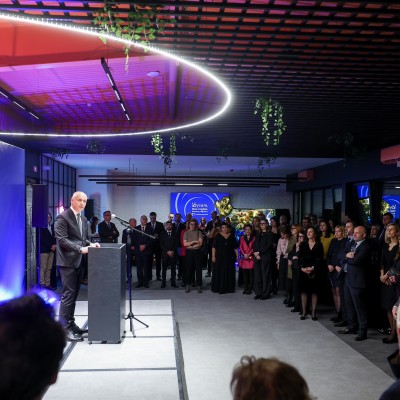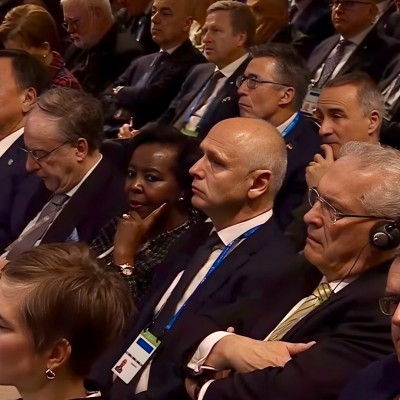RCC’s Youth Lab Project finalises the Third Youth Policy Lab on Green Agenda Youth from the Region Lead the Way Towards a Greener Western Balkans
21 October 2025
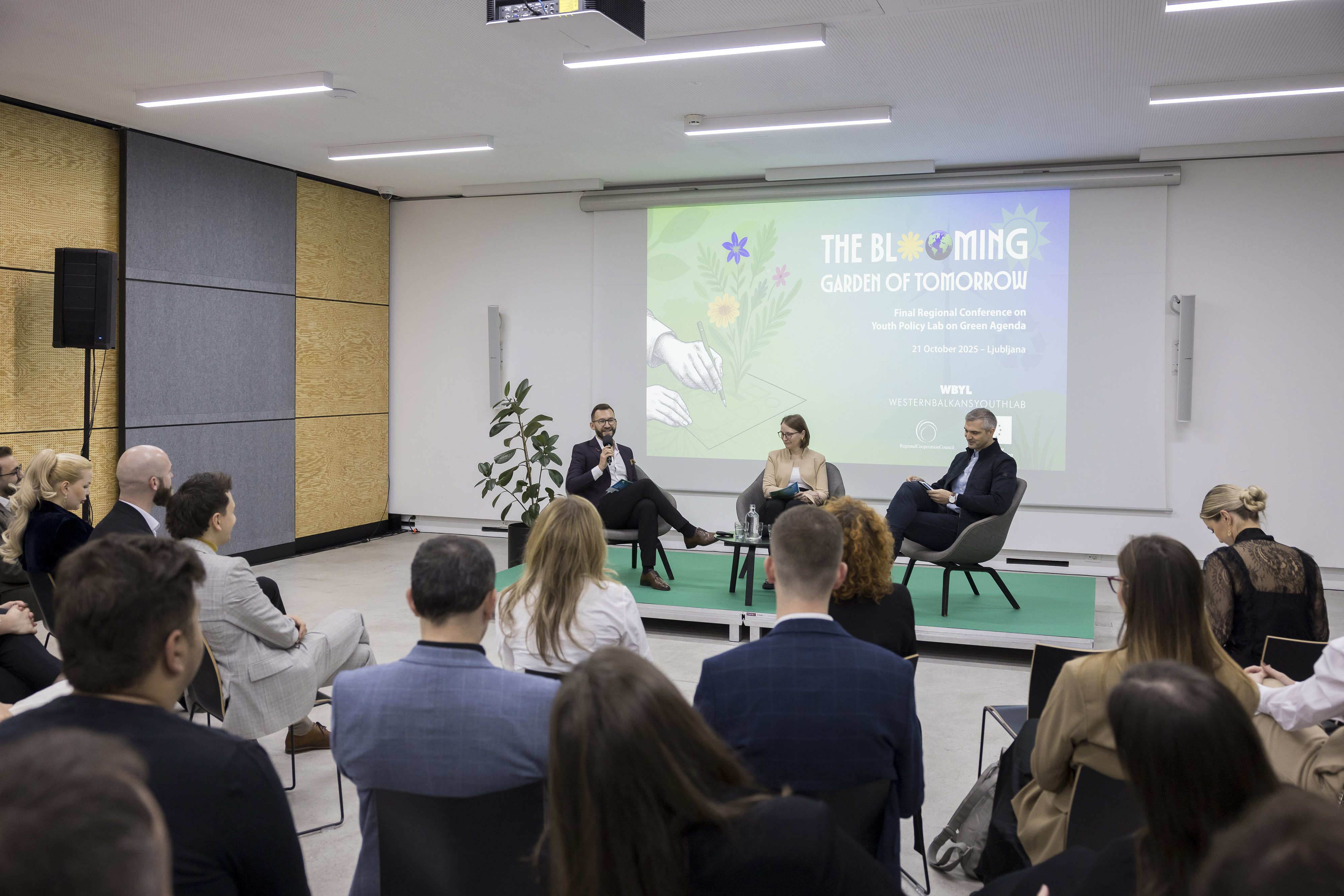
The Final Conference of the Youth Policy Lab on the Green Agenda dubbed "Blooming Garden of Tomorrow" took place in Ljubljana on 21 October 2025 (Photo: RCC/Aleš Rosa)

Ognjen Marković, Team Leader of the Western Balkans Youth Lab opening the Final Conference of the Youth Policy Lab on the Green Agenda in Ljubljana on 21 October 2025 (Photo: RCC/Aleš Rosa)
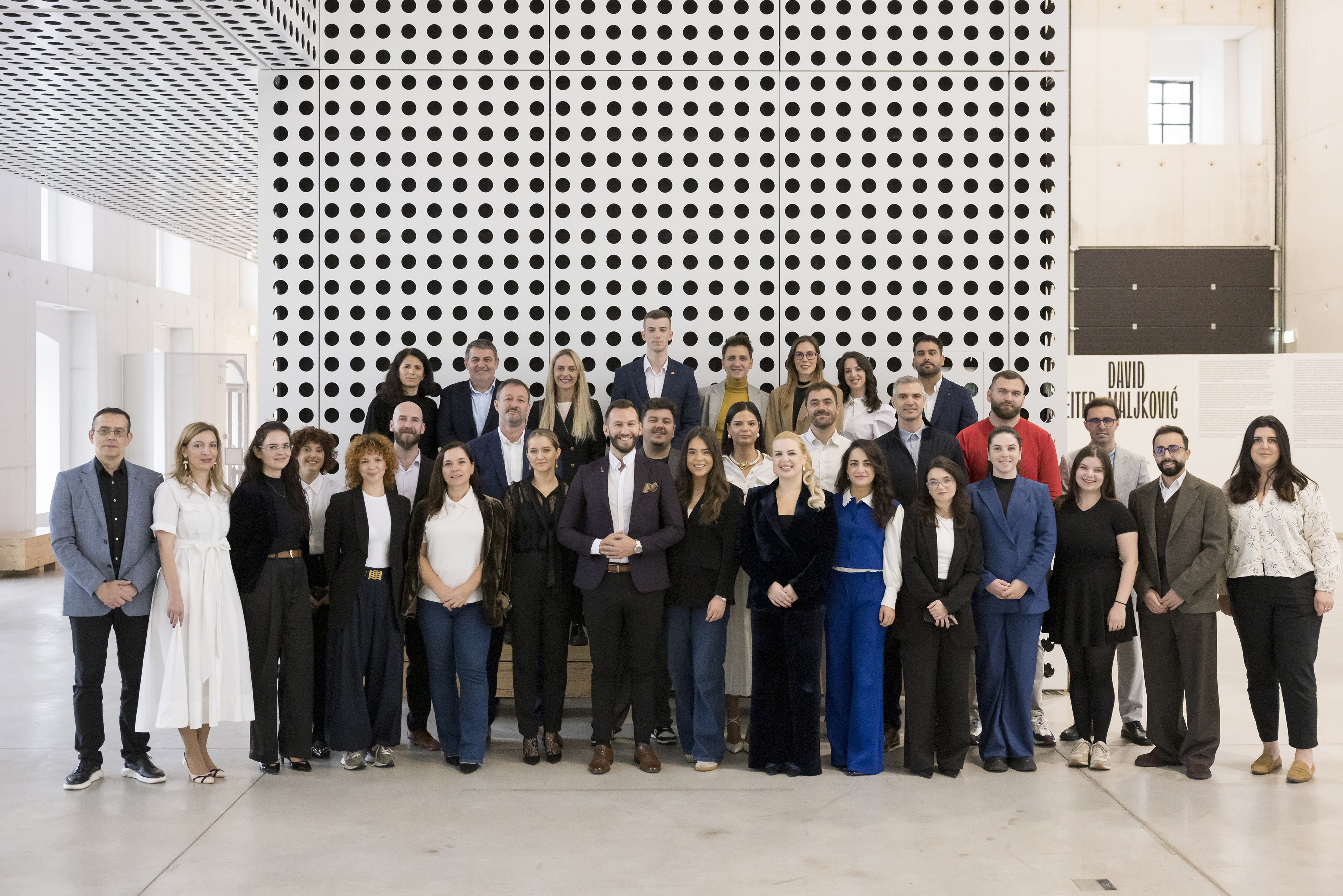
The Final Conference of the Youth Policy Lab on the Green Agenda, organised by the Regional Cooperation Council’s (RCC) EU-funded Western Balkans Youth Lab Project (WBYL2), was held in Ljubljana on 21 October 2025 (Photo: RCC/Aleš Rosa)
Ljubljana, 21st October – The Final Conference of the Youth Policy Lab on the Green Agenda, organised by the Regional Cooperation Council’s (RCC) EU-funded Western Balkans Youth Lab Project (WBYL2), was held in Ljubljana today, bringing together young visionaries, policymakers, and regional partners to showcase how youth-led ideas are shaping the future of the Green Agenda in the Western Balkans. This marked finalisation of the third Youth Policy Lab, following Youth Unemployment and Mental Health.
“The Youth Policy Lab serves as a bridge between generations and institutions, fostering dialogue that turns innovative ideas into actionable policies. Young people across the Western Balkans are proving that sustainable change starts from local action and shared vision. Results presented today are just the beginning, and the success further depends on sustained support and active youth engagement to turn these initiatives into tangible results across the Western Balkans Six,” emphasized Ognjen Marković, Team Leader of the Western Balkans Youth Lab during his opening remarks.
The conference, titled Blooming Garden of Tomorrow, featured co-chairs of the Youth Policy Lab, representatives of Youth Councils and policy makers along with different stakeholders. Speakers included Ms. Maja Schussler, Political Reporter at the European Commission Representation in Slovenia; Mr. Antonio Jovanovski, Programme Specialist for Climate and Sustainability at UNICEF Europe and Central Asia; and Mr. Simon Januš, Expert Associate from the Department of Environmental Protection of the City of Ljubljana and Mission 100 cities under 2030.
By directly involving young people in policy co-creation, the Policy Lab promotes inclusiveness, strengthens intersectoral cooperation, and contributes to the implementation of the Green Agenda through youth-driven initiatives. Over the past year and a half, Working Groups from the region have collaborated to design practical solutions for greener and more sustainable communities.
Across the Western Balkans Six, young people have driven substantial progress on the Green Agenda through a wide range of initiatives. The Green Seat Manual and a methodology for introducing a green seat in Local Youth Councils were developed, empowering youth to lead environmental actions. Youth Dialogues were organised to provide insights for regional analyses of the Green Agenda and Eco Bonton. A Comprehensive Gap Analysis was produced to strengthen youth participation in environmental decision-making. The framework and methodology for Youth Climate Councils were established, supporting structured youth involvement in climate action. Practical Guide for Active Youth Participation in Local Environmental Decision-Making and workshops equipped young people with the tools and knowledge to actively influence local green policies. Educational resources, including the Eco Youth Dictionary, were created, while campaigns promoted youth engagement in environmental initiatives. Collectively, these initiatives highlight the creativity, leadership, and collaborative spirit of youth across the region, driving meaningful change towards a sustainable future.
Building on the momentum and lessons learned from the Green Agenda process, the WBYL2 will soon launch the fourth Youth Policy Lab, focusing on disinformation and media literacy. This next edition will empower young people to tackle one of the most pressing challenges of our time with the same collaborative and forward-looking spirit that has defined the Green Agenda Lab.
More on the WBYL2 Project: Western Balkans Youth Lab Project
Western Balkans Youth Lab Project is funded by the European Union, and implemented by the RCC.

